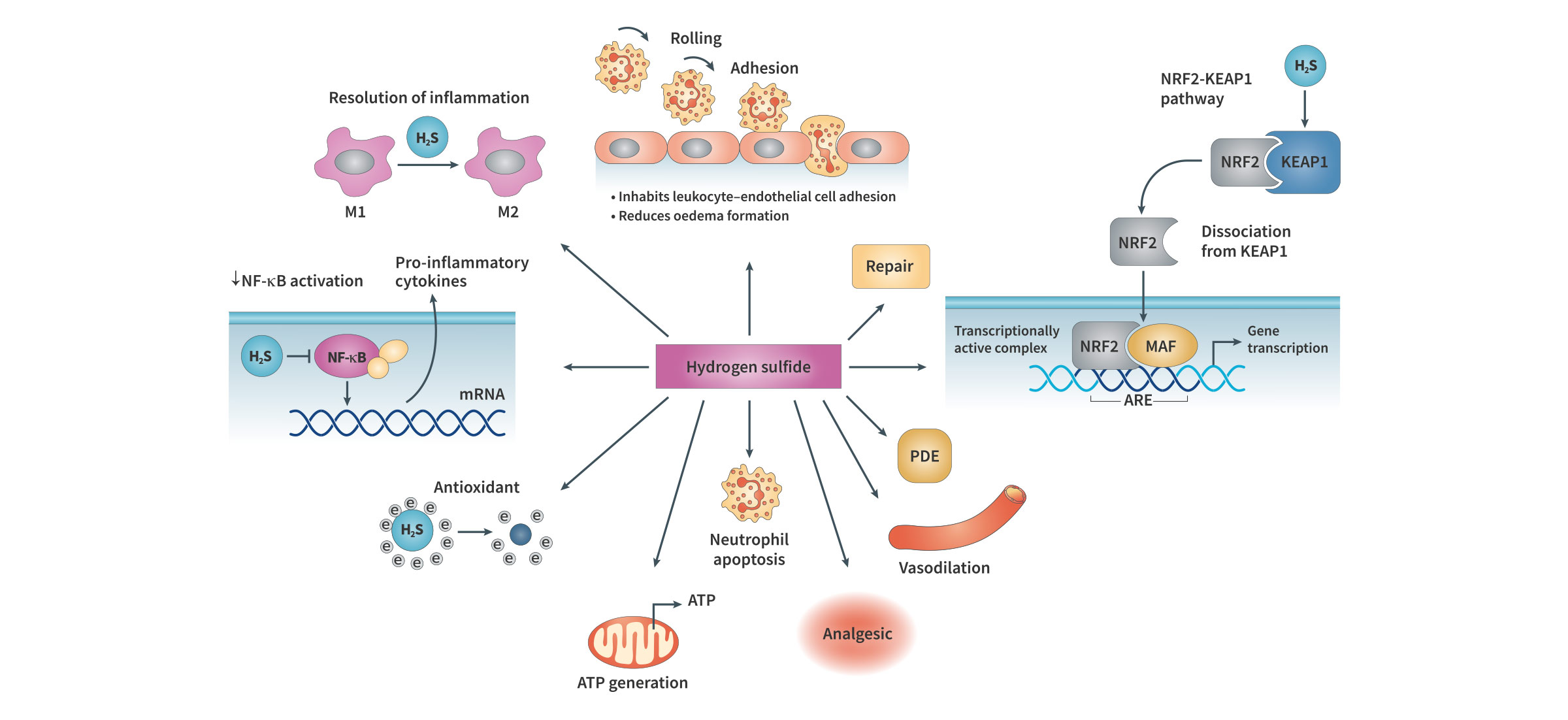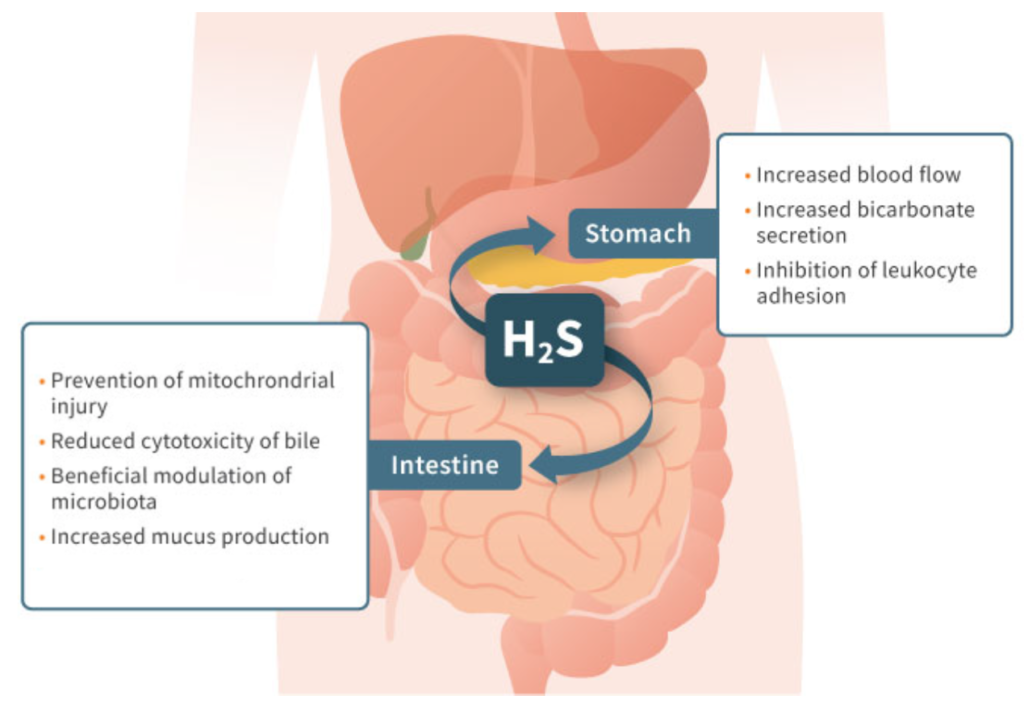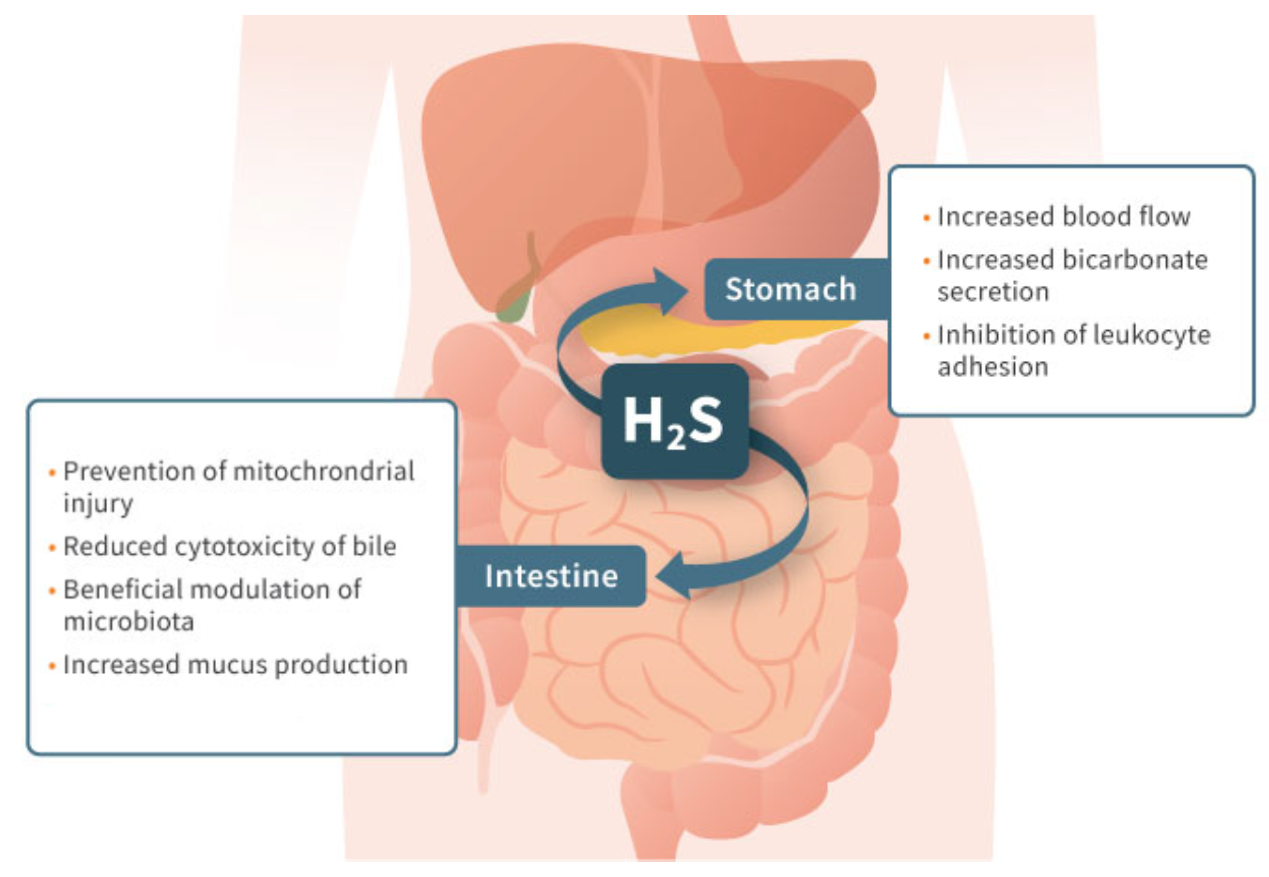Uncovering the biological role and therapeutic promise of hydrogen sulfide...
Roll over the numbers in the interactive diagram below to discover the broad biological repertoire of hydrogen sulfide. Adapted from paper by Wallace and Wang: Nature Reviews | Drug Discovery.

of white blood cells to the inner lining of
blood vessels. This maintains blood flow.
anti-oxidant responses
(beneficial) to help prevent
tissue damage.
inhibit the activity of
phosphodiesterases (PDEs) can
contribute to improved blood flow to
damaged tissues.
substitute for oxygen in driving
cellular respiration, preventing
damage associated with
reduced blood flow.
of key anti-inflammatory genes, and
turns off key pro-inflammatory genes.
sulfide promotes resolution of
inflammation, including by
driving a change from an
"aggressive" pro-inflammatory
state (Ml) to a less aggressive,
pro-healing form (M2).
Biological Origins
Discovery of Physiological Function
In 2002, Dr. Rui Wang* published research outlining hydrogen sulfide’s crucial role in nerve signaling—a scientific revelation about a substance long-viewed as hostile to life. Since then, hydrogen sulfide has been recognized for its range of key physiological roles, including regulation of energy production and homeostasis in the gastrointestinal, cardiovascular, respiratory, renal, hepatic, and reproductive systems. It also has a central role in managing oxidative stress, acting as a powerful cellular antioxidant in a variety of biological processes. Notably, many diseases feature abnormally increased or decreased hydrogen sulfide production, pointing to potential therapeutic applications.
…………………..
* In 2015, Dr. Wang and Dr. John L. Wallace, Antibe’s Chief Scientific Officer, co-authored a paper in Nature Drug Reviews describing therapeutic opportunities for hydrogen sulfide.
…………………..
Hydrogen Sulfide’s Role in Gastrointestinal Health
As indicated in the diagram (right), hydrogen sulfide plays several roles in maintaining the health of the digestive system. Within the blood vessels in the stomach lining, hydrogen sulfide acts to maintain blood flow by enabling increased bicarbonate secretion and by suppressing white blood cell (leukocyte) adhesion (also see video below). In the small intestine, hydrogen sulfide prevents injury to mitochondria (the energy source within cells), supports the health of the intestinal microbiome and increases the production of mucus.

Hydrogen Sulfide's Role in Gastrointestinal Health
As indicated in the diagram (below), hydrogen sulfide plays several roles in maintaining the health of the digestive system. Within the blood vessels in the stomach lining, hydrogen sulfide acts to maintain blood flow by enabling increased bicarbonate secretion and by suppressing white blood cell (leukocyte) adhesion (also see video below). In the small intestine, hydrogen sulfide prevents injury to mitochondria (the energy source within cells), supports the health of the intestinal microbiome and increases the production of mucus.

Hydrogen Sulfide: A Therapeutic Opportunity
The initial therapeutic breakthrough occurred in Dr. Wallace’s lab, where the role of hydrogen sulfide in preventing ulceration in an animal stomach was demonstrated. (Click on video to start and stop.)
The first video segment begins with blood flowing in a normal blood vessel (venule) in a rat intestine. One can observe white blood cells (leukocytes) moving through the bloodstream. After the video flashes, the second segment shows the venule after the rat has been treated with glibenclamide, an inhibitor of in-body (endogenous) hydrogen sulfide production. Note how the venule now becomes occluded by sticky white blood cells. Their accumulation can also damage the walls of blood vessels, further interfering with normal blood flow. This restriction of circulation is one of the first steps in NSAID-driven stomach ulceration.
New Physiological Insight ... Translated Into New Pharmacology
In the mid-2000s, based on a new understanding of hydrogen sulfide’s gastrointestinal-protective and anti-inflammatory properties, biochemical and animal data were collected for a range of hydrogen sulfide-releasing drug candidates. By 2009, the capacity to prevent NSAID-driven gastrointestinal damage had been therapeutically demonstrated, and Antibe was formed to develop its drug platform.
